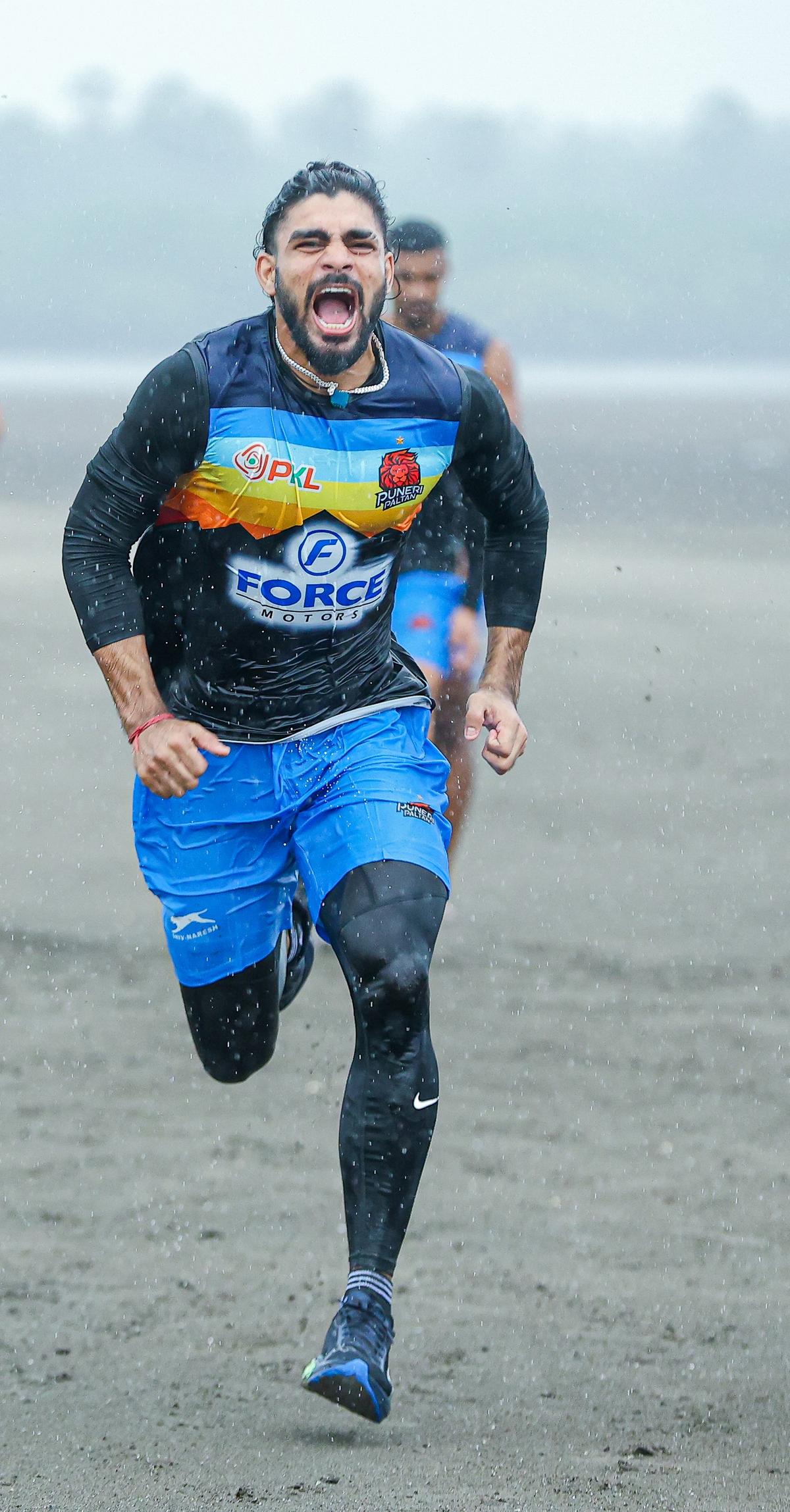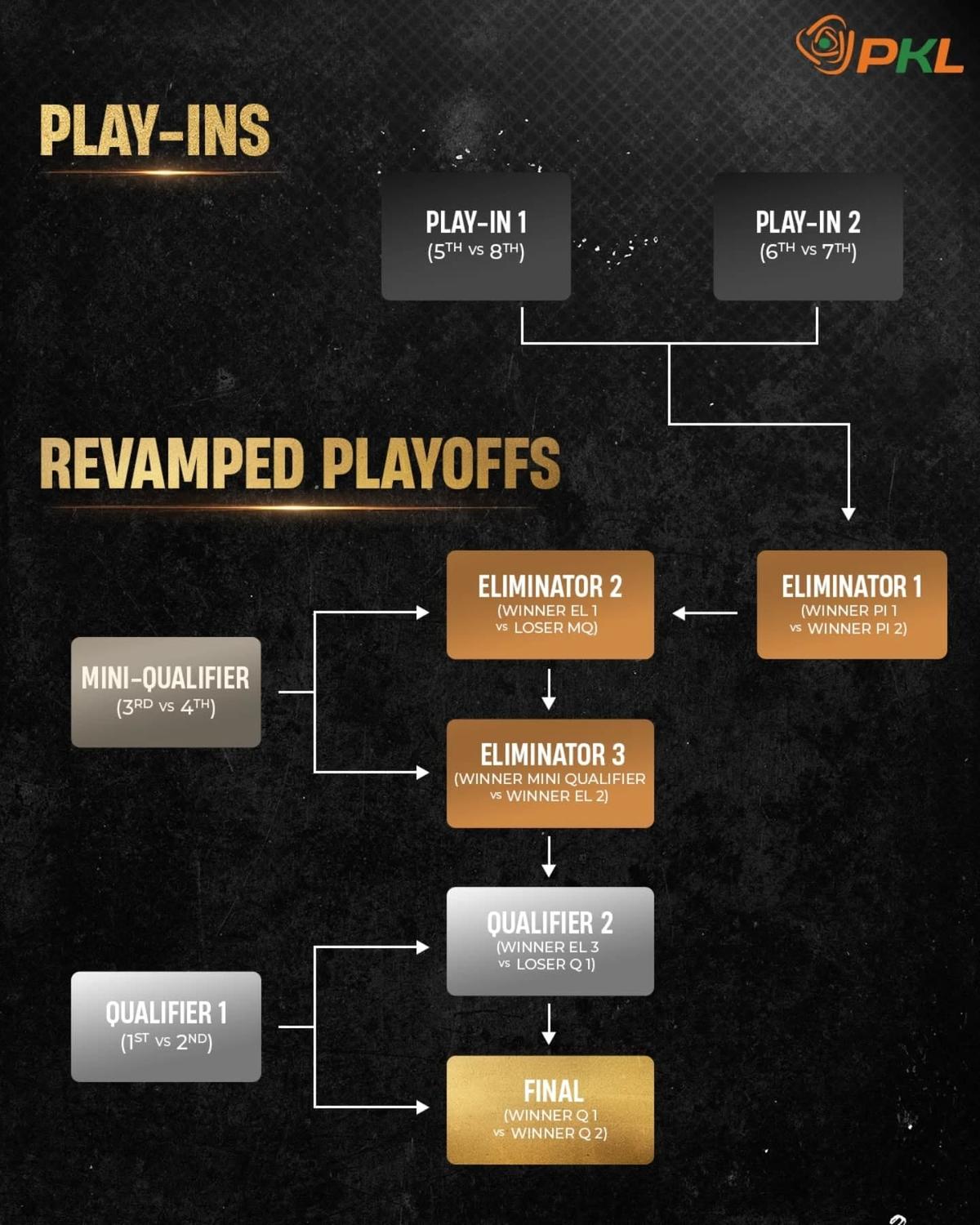Pro Kabaddi League 2025 Preview: Key changes that will shape PKL 12
Tightening a sport to the rhythms of broadcast demands often calls for innovation. The viewers — or perhaps more accurately, the viewership numbers — reign supreme, dictating the ‘product.’
The Pro Kabaddi League is no exception. Now in its 12th chapter, the league already looks very different from the amateur global version of the sport. A sophisticated multi-camera setup and a steady stream of tweaks to balance raiders and defenders have reimagined a rustic, indigenous game for modern audiences.
The latest changes seem to draw heavily from cricket, particularly the IPL. Draws have been scrapped, replaced by a Super Over-style tiebreaker for the league stage. The knockout phase has also shifted: instead of the top two teams going straight to the semifinals, the IPL model of a qualifier ensures the losing side gets another chance to reach the final.
Points have been simplified, too. Gone is the system of five points for a win, three for a draw, and one for a close loss. In its place: a straightforward binary of two points for a win, none for a defeat.
“The long-drawn nature of the league meant a lot of teams were raising concerns about players tiring out. Injuries are also a major point of worry for the tournament as a whole. So we’ve made the league stage a bit shorter. This will also make proceedings more competitive,” technical director E. Prasad Rao tells Sportstar.
The new format increases the incentive to finish higher on the table, rather than simply sneaking into the knockouts and coasting.
Fresh water flows
This season is also the first without any of PKL’s original superstars. Pardeep Narwal’s retirement marks the end of a golden generation and the beginning of a wide-open contest.
“The old water is flowing away, making way for fresh water. Many youngsters are waiting to take over. We saw the likes of Devank and Ayan last season, but there are plenty more eager to prove themselves. We may see a few more of them own that stage this season,” Rao says.
Iranian powerhouse: Mohammadreza Shadloui Chiyaneh, the Iranian allrounder and two-time PKL champion, now brings his match-winning edge to the Gujarat Giants.
| Photo Credit:
Special Arrangement
Iranian powerhouse: Mohammadreza Shadloui Chiyaneh, the Iranian allrounder and two-time PKL champion, now brings his match-winning edge to the Gujarat Giants.
| Photo Credit:
Special Arrangement
The auction has mirrored this generational shift. Teams could, for the first time, retain players for two seasons instead of one — a small but important nod to stability.
“Long-term contracts, trading windows, player policies, exit clauses for teams to also be secure should all be on the table,” U Mumba CEO Suhail Chandokh had said after the last edition. The league appears to be moving that way.“
Longevity is the best term to be used here. Players sticking with teams for a longer time is good for the league in the long run. Even now, there are thousands who associate Rahul Chaudhari with Telugu Titans. That bonding is required and advantageous for the player as much as it is for the team,” Rao explains.
Coaching rosters have also been reshuffled. For the first time in PKL history, Randhir Singh Sehrawat — who led Bengaluru Bulls to the Season 6 title — finds himself without a team. Ram Mehar Singh, who masterminded Patna Pirates’ early dominance, is also absent.
In their place, younger coaches and former greats have been entrusted: Ajay Thakur with Puneri Paltan, Anup Kumar at the Pirates, Anil Chaprana back with U Mumba, and Joginder Narwal continuing at Dabang Delhi.
Big picture
But while players and coaches come and go, the larger question is what all this means for kabaddi’s long-term future. With India bidding to host the 2030 Commonwealth Games, where kabaddi could make its debut, the sport has a chance to clean up a messy ecosystem.

Champion comeback: Back from injury, Aslam Inamdar — the skipper who powered Puneri Paltan to the PKL 10 title — is ready to lead from the front once again.
| Photo Credit:
Special Arrangement
Champion comeback: Back from injury, Aslam Inamdar — the skipper who powered Puneri Paltan to the PKL 10 title — is ready to lead from the front once again.
| Photo Credit:
Special Arrangement
Outside the Asian Games and Asian Championships, there is little international activity to keep countries beyond India and Iran engaged. Vinod Tiwari, president of the International Kabaddi Federation, explains the paradox PKL creates.
“Given that the PKL happens every year, people watch it on TV and think everything is happening and is okay with the sport. But it is not. The ecosystem has been in limbo for the last eight-odd years. If you see the other countries, apart from Iran, where players participate in large numbers in the league, barely any other nationalities are there. A few here and there, maybe, but not too many people,” he says.
At home, governance remains shaky. The Amateur Kabaddi Federation of India [AKFI] emerged from years of court-appointed oversight only to be immediately sidelined, triggering a ban that was hurriedly lifted before the women’s team left for the Asian Championship in Iran.
PKL, meanwhile, positions itself as the sport’s evangelist.
“Pro Kabaddi is not just a professional sport; it’s also a promotion for the actual sport. PKL made kabaddi a sport of international standard. It standardised the sport, modernised it, and helped it align with scientific processes. While the 2036 Olympics is a big target for us as a community, the 2030 CWG gives us a solid chance,” Rao says.

Expanding horizons
Over the years, the league has tried spreading kabaddi’s gospel through talent development, broader auctions, and even an exhibition game in Melbourne featuring retired Aussie rules players. Now, PKL and Mashal Sports are working with the AKFI to revive dormant federations abroad.
“We’ve been looking at the West Indies — Guyana, Tobago, and others like the Virgin Islands, which had good teams. If the Commonwealth Games falls in place as a platform and we can get these teams to participate, making a case for kabaddi at the Olympic level will be the easiest thing,” Rao reveals.
That global push is mirrored domestically. The league returns this year to Visakhapatnam, a venue rich in kabaddi heritage but absent since 2018.
“Vizag had been part of the league’s fabric since the inaugural season. Outside the PKL, this city also has a rich legacy in the sport. The Bharat Heavy Plate & Vessels Ltd. had a very good kabaddi team. The Port Trust also had a solid team with some international players. We’re going back to one of the foundational venues of this league. We’re confident of people turning up in large numbers, as they always have, and of sport getting a fillip consequently,” Rao adds.
Published on Aug 28, 2025


